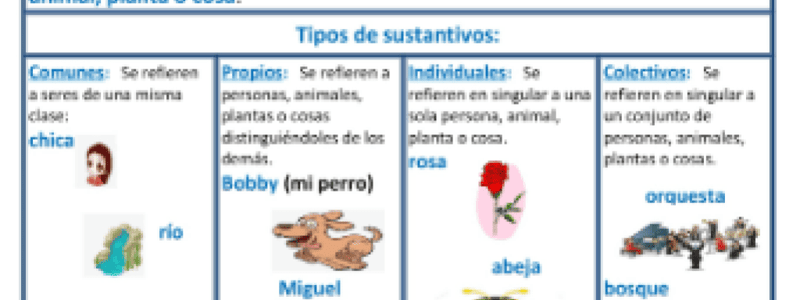Podcast
Questions and Answers
¿Cuál de los siguientes ejemplos es un sustantivo común?
¿Cuál de los siguientes ejemplos es un sustantivo común?
- Juan
- Perro (correct)
- Madrid
- Coca-Cola
Qué característica define a los sustantivos propios?
Qué característica define a los sustantivos propios?
- Identifican específicamente a individuos. (correct)
- Designan ideas o sentimientos.
- Se pueden pluralizar.
- Se escriben con minúscula inicial.
¿Cuál de los siguientes sustantivos es abstracto?
¿Cuál de los siguientes sustantivos es abstracto?
- Ciudad
- Mesa
- Perro
- Tristeza (correct)
Identifica el sustantivo colectivo en las siguientes opciones.
Identifica el sustantivo colectivo en las siguientes opciones.
Selecciona la opción que representa un sustantivo concreto.
Selecciona la opción que representa un sustantivo concreto.
¿Cuál es una característica de los sustantivos comunes?
¿Cuál es una característica de los sustantivos comunes?
¿Qué tipo de sustantivo es 'flota' en el contexto de un grupo de barcos?
¿Qué tipo de sustantivo es 'flota' en el contexto de un grupo de barcos?
¿Cuál de los siguientes sustantivos no se puede pluralizar?
¿Cuál de los siguientes sustantivos no se puede pluralizar?
Selecciona el ejemplo de un sustantivo abstracto.
Selecciona el ejemplo de un sustantivo abstracto.
Flashcards are hidden until you start studying
Study Notes
Noun and Its Classes
- Noun: A word that designates people, animals, things, ideas, or feelings.
Common Nouns
- Definition: Names that generalize people, animals, or things.
- Examples: dog, city, book.
- Characteristics:
- Not capitalized unless at the beginning of a sentence.
- Can be pluralized (dogs, cities, books).
Proper Nouns
- Definition: Names that specifically identify individuals, places, or entities.
- Examples: Juan, Madrid, Coca-Cola.
- Characteristics:
- Always capitalized.
- Do not pluralize (Juan, not Juans).
Concrete Nouns
- Definition: Names for objects or beings that can be perceived through the senses.
- Examples: table, dog, music.
- Characteristics:
- Can be touched, smelled, seen, etc.
- Related to tangible items.
Abstract Nouns
- Definition: Names for ideas, feelings, concepts, or qualities not physically perceivable.
- Examples: love, justice, sadness.
- Characteristics:
- Cannot be perceived through the senses.
- Represent intangible notions.
Collective Nouns
- Definition: Names that designate a group or set of beings or things of the same kind.
- Examples: pack (of wolves), fleet (of ships), team (of soccer).
- Characteristics:
- Refer to pluralities but are considered singular.
- Can encompass various elements under one term.
Studying That Suits You
Use AI to generate personalized quizzes and flashcards to suit your learning preferences.




